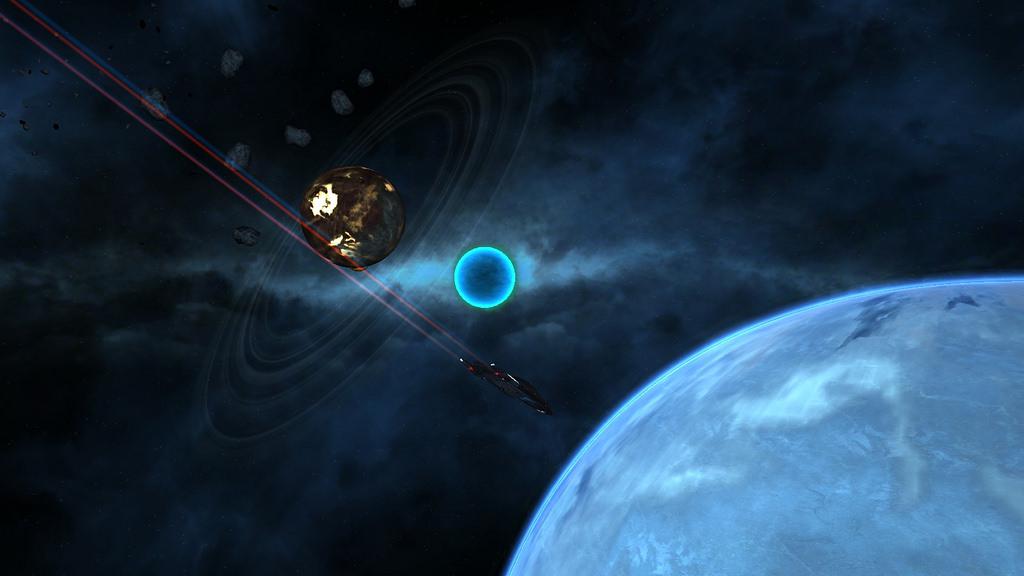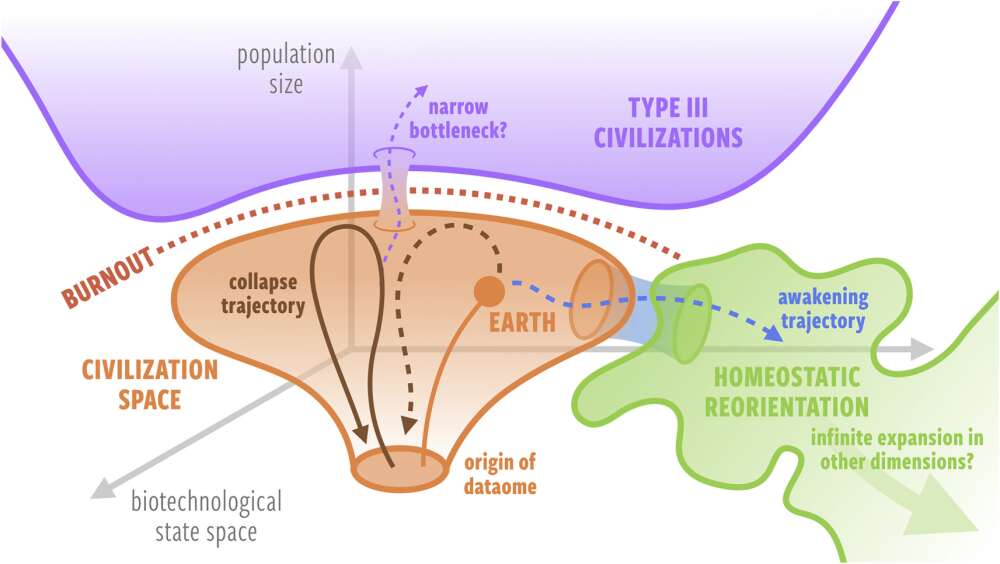If alien civilizations rise and fall like those on Earth, it may explain why we haven’t met any, two astrobiologists propose. This could explain the Fermi Paradox, while avoiding the bleakness of many other answers to the question of where the aliens are.

Maybe aliens aren’t here because they prioritized looking after the ecosystems on their home planet ahead of endless expansion. Image Credit: Marti Bug Catcher/Shutterstock.com
The scientists propose that just as cities and nations fail from overly rapid expansion, the same may be true for species on the cusp of space travel. Those that recognize the dangers may flourish indefinitely but without expanding far enough to reach us, while others collapse and fail to make contact.

The Fermi Paradox starts with the observation there are an awful lot of planets in the universe, and those numbers make it likely some of them are inhabited. Therefore, we might expect some to develop the technology for spaceflight and colonize the universe. Therefore, the paradox states, they should be here already – yet we haven’t seen them.
Dr Michael Wong of the Carnegie Institution for Science and Caltech’s Dr Stuart Bartlett argue in the Journal of the Royal Society Interface that civilizations on Earth tend to run into trouble when they expand too much. The same, they reason, will be true in space. If so, any society that expands too far will fall apart, with devastating consequences, long before they can explore most of the universe. On the other hand, wiser species would acknowledge their limits and stop well beforehand, thus also leaving the vast majority of star systems untouched.

Unless a stable civilization happened to be very nearby, in astronomical terms, we wouldn’t know about them. The claim is of course, entirely unverifiable at the moment – but the implication that we need to know our limits, rather than expand beyond them, has wider implications.
The authors propose planetary civilizations reach a state of connectedness where they are equivalent to a single global city.
“In some ways, a city is a superagent composed of individual human agents analogous to a multi-cellular organism that is a superagent composed of individual cellular agents,” Wong and Bartlett write.
However, they point to analysis showing that cities expand features such as their energy consumption superlinearly – growing faster than their growth in size – in contrast to biological processes, which are sublinear. This leads to “singularities” where the populations and energy requirements become infinite. Initially, innovations – be they technological or conquests of new territory – postpone collapse, but can only manage for so long. Eventually, cities’ growth becomes fast enough that innovation cannot keep up.
“If a civilization develops the capability to understand its own trajectory, it will have a window of time to affect a fundamental change to prioritize long-term homeostasis and well-being over unyielding growth,” the paper argues, calling this a “homeostatic awakening.”
In this view, civilizations that don’t reach that awakening end up too busy fighting over the scraps of their former greatness to be out exploring the galaxy.

A hypothetical three-dimensional graph explaining the absence of aliens. If the bottleneck to becoming a type III civilization capable of spanning a galaxy is narrow, and the path to preserving the home planet and near neighbors is wide, it would make sense not to encounter aliens. Image Credit: Wong and Bartlett/ Journal of the Royal Society Interface.
Under Wong and Bartlett’s hypothesis, the universe is filled with short-lived civilizations that prioritize growth and long-lived ones that chose homeostasis.
Those who dream of a galactic federation boldly going where no small furry creature has gone before may find this scenario depressing, and in some ways it is. However, it looks good compared to many alternatives. Some have argued that collapse is inevitable, without offering the homeostatic awakening escape route. Others conclude that technologically advanced aliens are all psychopathic, disunited, or paranoid to establish a detectable presence.







